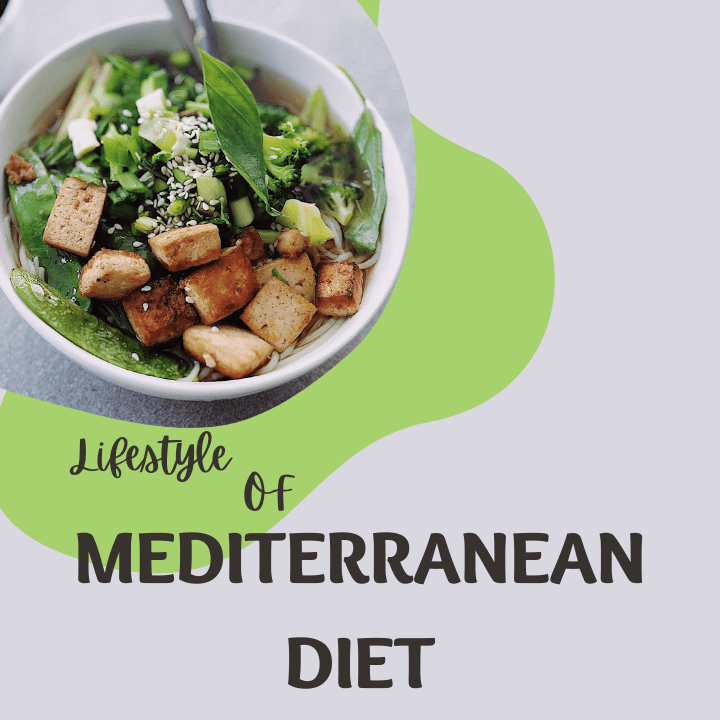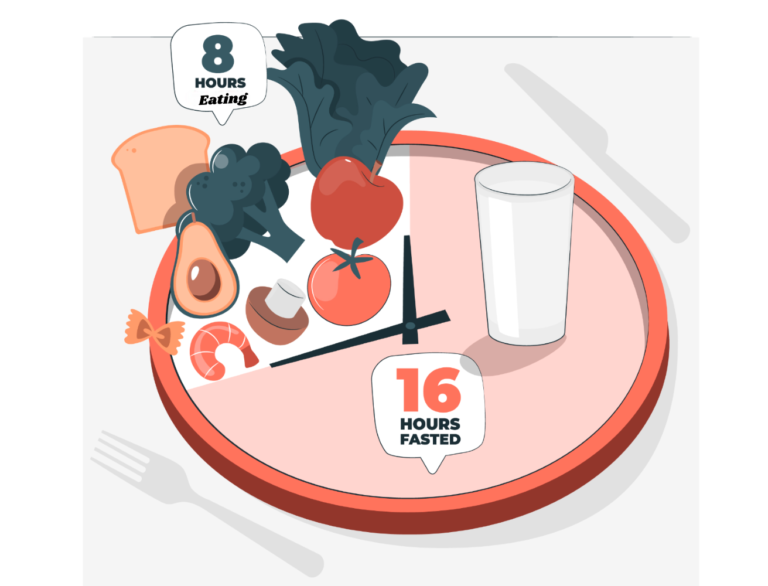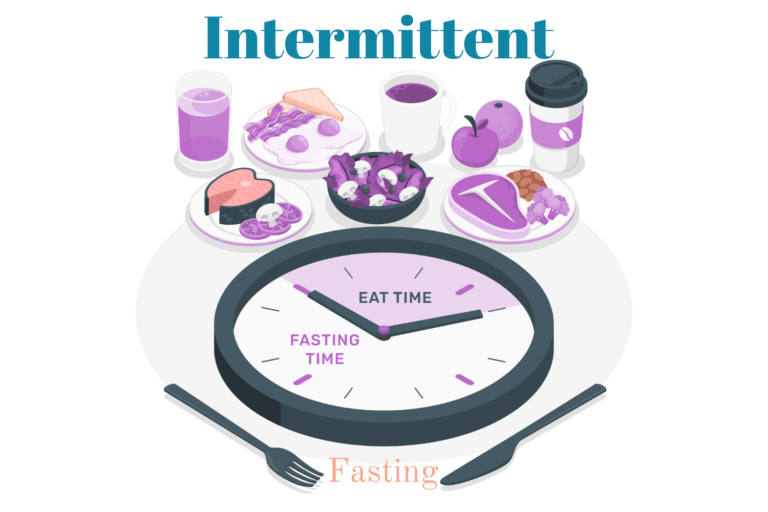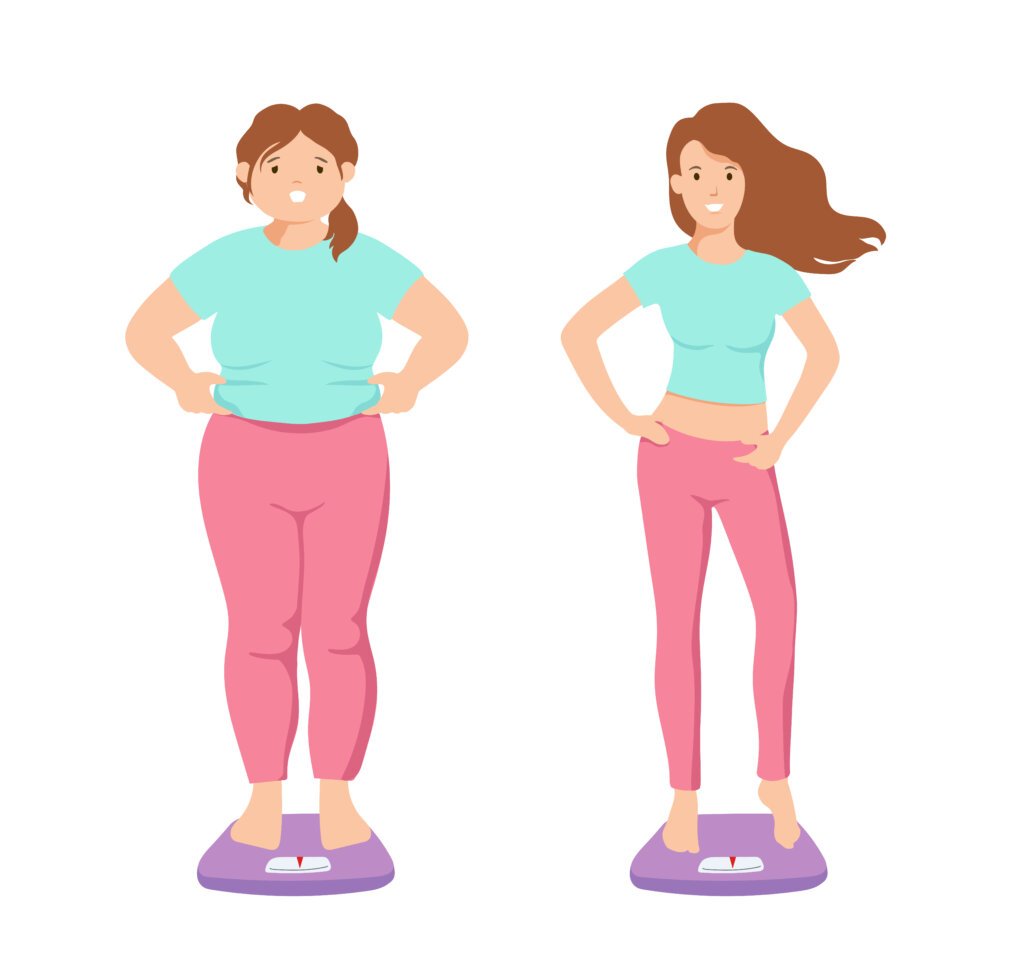Mastering the 16:8 Intermittent Fasting Method
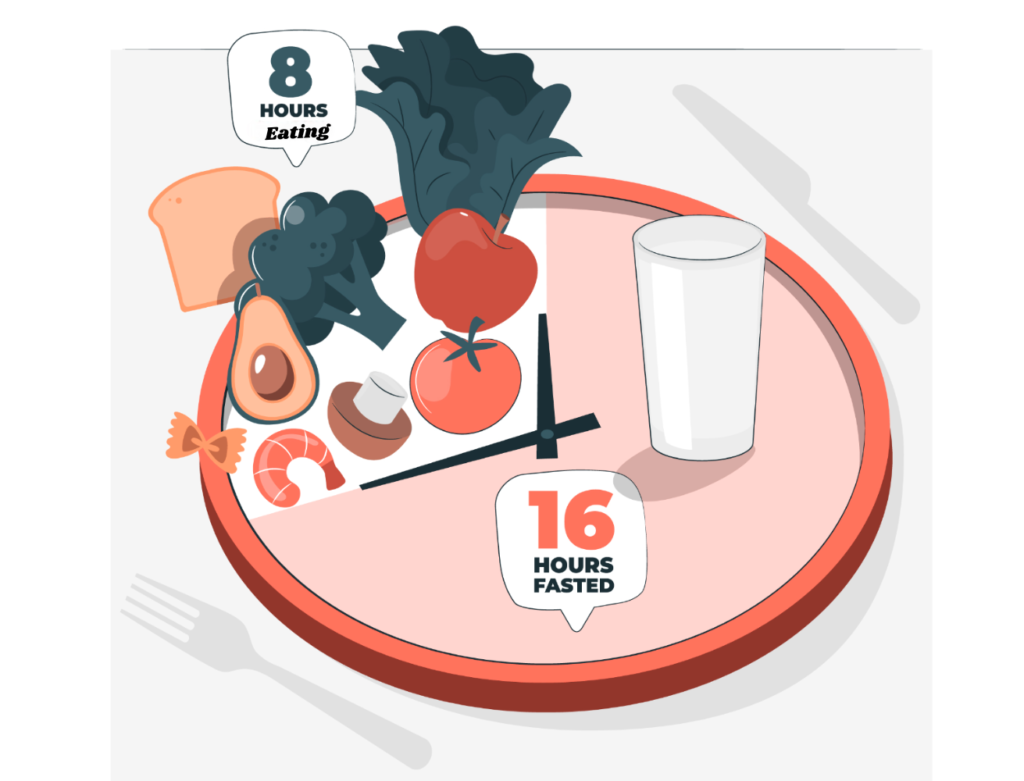
The 16:8 method is the most popular and flexible type of intermittent fasting.
The rule of this method is fasting for 16 hours and limiting all food and calorie intake to within 8 hours. The reason behind the popularity of this method is that no strict diet needs to be followed. Also, the possibility of success with this method is higher than with others.
People can follow this method for three to four days a week initially and then gradually maintain it every day until they achieve the desired results.
Dieters who are determined to lose weight should definitely try this particular fasting method.
One rule that needs to be maintained strictly is consistency. Any diet method needs to be followed consistently.
Time Table Ideas for the 16:8 Fasting Method
This method should be chosen according to the person’s flexible timetable. Some people are okay with skipping breakfast, while others are comfortable with an early dinner. Some of the possible timetables for the 16:8 method are:
If someone chooses to have breakfast at 9 a.m. or 10 a.m., then they should definitely finish their dinner by 5 p.m. or 6 p.m.
In this timetable, the dieter will have plenty of time to have a hearty breakfast in the morning but will have to fast at night. This idea is perfectly suited for people who go to work early in the morning.
People who are okay with skipping breakfast can start their eating period at noon, eat plenty of food during the day, and finish by 8 p.m.
Someone who is an early riser should start the timetable at 7 a.m. and finish eating by 3 p.m. But this timetable is not practiced much as a large portion of the waking time is spent fasting.
If you ask an expert about the flexible timetable, they would suggest that from 9 a.m. to 5 p.m. is perfect. Otherwise, the time depends on the individual’s flexibility.
What Foods to Eat During the 16:8 Fasting Method?
Usually, there is no strict rule for this fasting method. However, eating frequent and heavy meals can help to lose weight more effectively than eating junk food.
Foods that are suggested to eat during the 8-hour eating period are:
- Lean protein: Turkey or chicken breast, lean portions of beef, mutton, pork, etc.
- Eggs or milk.
- Leafy vegetables: Spinach, kale,bok choy, cabbage, cauliflower, broccoli, etc.
- Fresh seasonal fruits: Orange, apple, strawberry, apricot, peach, etc.
- Berries: Blueberries, sunberries, etc.
- Detox drinks: Green tea, black tea, herbal tea, lemon tea, etc.
- Whole grains: Oats, quinoa, barley, buckwheat, etc.
What is Allowed During the 16-Hour Fasting Period?
No kind of calorie intake is allowed during the fasting period. However, no-calorie drinks are permitted as they don’t contain any calories. These include black coffee, green tea, herbal tea, chamomile tea, lemon tea, etc.
Foods to Avoid During the Eating Period of the 16:8 Intermittent Fasting Method
Some restricted foods are not allowed by dieticians or nutrition experts at all. These foods are not beneficial for our body and affect it very badly.
- Packaged foods or packaged snacks.
- Junk foods or fast food.
- Sugary beverages.
- Fried foods.
- Refined carbs.
Potential Benefits of the 16:8 Intermittent Fasting Method
The biggest potential benefit of this type of intermittent fasting is weight loss. The popularity behind this method is its flexibility and effectiveness.
Weight loss is not the only benefit of this fasting method, but there are many health benefits:
- The 16:8 method of intermittent fasting helps to improve heart rate.
- Improves blood pressure
- Improves brain function
- Improves memory and thinking function
- Helps with type 2 diabetes
- Protects against cancer, cardiovascular disease, and Alzheimer’s disease
- Improves longevity
- Helps with physical stamina and strength
- Aids in weight loss
Potential Side Effects of the 16:8 Intermittent Fasting Method
Although this particular 16:8 fasting method has many health benefits, including the main purpose of weight loss, there are also many potential side effects.
This fasting method is not suitable for some special groups:
- Overeating: Overeating can be a problem while following this time-restricted method. Mainly, it can be a major issue for beginners. As they fast for so long, they tend to overeat during their eating period. It’s quite difficult to control at first, so the probability of overeating increases.
- Eating disorders: People with eating disorders should avoid this intermittent fasting method as it can be risky and is not advisable.
- Type 1 Diabetes: People with type 1 diabetes have not shown any benefits from this method. Type 2 diabetes patients can benefit from it. This method decreases insulin levels in the body, and type 1 diabetes patients require external insulin, so this could negatively affect their body.
- Pregnant and lactating women: Pregnant or lactating women are not advised to follow this diet. Also, women who are trying to conceive are not allowed.
- Malnutrition: Patients suffering from malnutrition are also not advised to follow this method.
- Female reproductive health: Women with average weight might experience negative effects on reproductive health by following this method.
Most importantly, consult with your personal doctor, dietician, or nutritionist. Seek advice from experts, do some research, and make a decision wisely.
- 9 a.m.–5 p.m.
- 10 a.m.–6 p.m.
- 12 p.m.–8 p.m.
- 7 a.m.–3 p.m.
- 2 p.m.–10 p.m.
Follow Us
100% FREE SUBSCRIPTION
What content would you like to receive?


